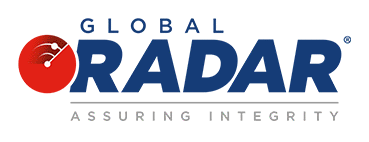As inflation rates continue to wreak havoc on the bottom-lines of the middle and lower class across the United States, American citizens are seeing their dollar count for arguably less than ever before. The basic costs of living across America remain at unprecedented levels, making ends harder to meet and creating a state of desperation that has lead to a run on crime – white-collar and traditional – that analysts and law enforcement alike expect to continue into the foreseeable future. This trend has garnered the attention of several top government agencies that have begun to warn of the many risks posed to both financial institutions and citizens alike as this unique economic state continues. Last week, the United States Treasury Department’s Financial Crimes Enforcement Network (FinCEN) issued a notice with regard to increases in payroll tax evasion and workers’ compensation insurance fraud, finding the construction industry as an area that is seeing a major uptick in these illicit activities. The joint notice published by FinCEN in coordination with the IRS Criminal Investigation (CI) highlights the fact that both state and federal government bodies are losing hundreds of millions of dollars because of schemes regarding these areas continue on unhindered.
Since its very origins dating back to the late 1800’s, income taxation has served various social and economic purposes. Most notably, state and federal income taxes are the primary means of funding public services, paying government obligations, and providing goods and services for American citizens. However, tax evasion – i.e., deliberately or inadvertently avoiding paying one’s true tax liability – remains one of the most prevalent forms of crime across the globe today. The global monetary figure associated with these crimes also remain difficult to accurately track given the multitude of ways in which this crime can be carried out. Generally, holding unreported or under-reported income, reporting expenses one failed to incur, and the simple failure to pay taxes owed are seen as the most common forms of tax evasion, though new avenues are arising daily. All told, approximately one out of every six dollars owed in federal taxes is not paid, with the amount of unpaid taxes in the United States alone each year accounting for roughly three-quarters the size of the entire annual federal budget deficit.3 All businesses incorporated in the United States that hire employees are required to pay taxes to the IRS. With respect to the employer side of this equation, some firms will effectively use the IRS as their personal bank by withholding income taxes from their employees’ paychecks for a short period with the intent to pay them back at a later date. Others do so without any intention to pay the IRS what they owe, which creates a much larger issue down the line. And while tax evasion generally remains synonymous with individuals seeking to avoid paying their tax dues, employers engaged in these practices continue to run rampant as well.
There are many schemes that crooked employers use to evade taxes on employment. It is a relatively common practice for high-income taxpayers to attempt to use bankruptcy to reduce associated tax liabilities. “Bankruptcy Fraud” itself, which is prevalent in the construction sector, runs on the premise of filing for bankruptcy without giving an accurate accounting of your assets, which can further affect ultimate collection by the government. Pyramid schemes use the above-mentioned tactic of “borrowing” money from employee paychecks and then end the scheme by filing for bankruptcy to avoid having to pay. They are then free to move on to start a new business under a different name while netting some proceeds in the process. Other common methods will see employees pay their employees strictly in cash so there is no electronic record or paper-trail for the IRS to determine how much in taxes they actually owe. The construction industry is also notorious for seeing employers purposely misclassify their own employees or hire outside contractors to complete various jobs without having to list these individuals on their records in order to avoid paying additional tax liabilities. Finally, there are those who simply use the classic method of cooking the books with false amounts of wages so that they pay fewer taxes. In addition to employment tax evasion, FinCEN’s Notice also focuses on the issue of workers’ compensation fraud. Workplace injury and illness risks generally vary according to the industry and nature of the work involved. Naturally, construction is among the highest in terms of risk of on-site injury, making fraud cases relatively run-of-the-mill in this regard.
FinCEN’s notice however identifies a concerning trend that ties these two areas together. The memo explains that crooked employers are now combining employee tax evasion with workers’ compensation fraud to create one larger and more-profitable scheme. The Notice describes this method as being supported by shell companies that are created to avoid paying workers’ comp premiums as well as state and local taxes. The operators of the shell company will essentially take out a small compensation policy and “rent” it to construction contractors that employ a much larger number of workers than the policy is designed to cover. This enables the shell company to apply for and receive official business registration status, with the shell company operators including a business license and tax documentation as part of the package being “rented” to the contractors – creating the insurance fraud aspect of the tactic.1 Furthermore, contractors can also use these shell companies to pay their workers under the table so that there is no paper trail for the IRS to follow. The Notice also mentions that these schemes often use illegal aliens for labor and for creating shell companies (though they use the politically correct term of “undocumented workers”).
“FinCEN is committed to combating fraud by shedding light on how illicit actors within the construction industry are using shell companies and other tactics to commit workers’ compensation fraud and avoid payroll taxes,”2 said FinCEN Acting Director Himamauli Das following the release of the updated notice. “We are proud of our collaboration with [IRS Criminal Investigation] (CI) in issuing this Notice and exposing tax and insurance fraud that has plagued the construction industry and undermines law-abiding construction firms. Today’s Notice provides information that financial institutions can use to remain vigilant in monitoring, detecting, and reporting suspicious activity that may be indicative of payroll tax evasion and workers’ compensation fraud in the construction industry.”2 The bureau is anticipating that novel Bank Secrecy Act data developed as a result of the increased attention being given to these developments will help its criminal investigations unit to expose an increased number of these cases in the near future. FinCEN also sees this as a chance to build on the government’s ongoing efforts to combat the use of shell companies for illicit financial activity, such as real estate purchases made domestically.
The notice titled FinCEN Calls Attention to Payroll Tax Evasion and Workers’ Compensation Fraud in the Construction Sector can be found in its entirety here.
Citations
- Danch, Siana, and Peter D. Hardy. “FinCEN Issues Notice on Payroll Tax Evasion and Workers’ Compensation Fraud in the Construction Industry.” Money Laundering Watch, 17 Aug. 2023.
- “FinCEN Notice Highlights Concerning Increase in Payroll Tax Evasion, Workers’ Compensation Fraud in the Construction Sector.” The Financial Crimes Enforcement Network, U.S. Department of the Treasury, 15 July 2023.
- Gale, William G., and Aaron Krupkin. “How Big Is the Problem of Tax Evasion?” Brookings, 20 June 2023.

